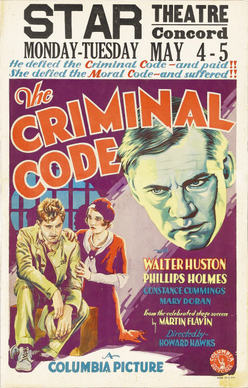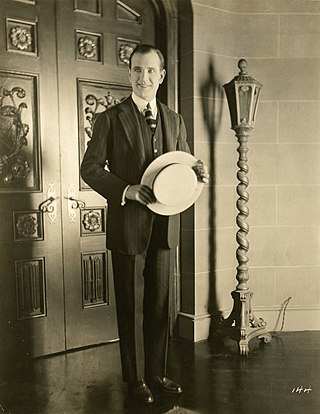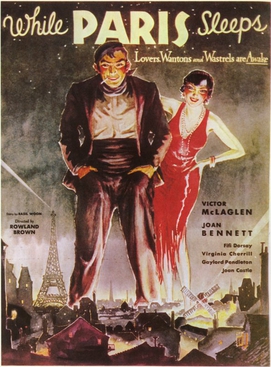
Claude Elwood Shannon was an American mathematician, electrical engineer, computer scientist and cryptographer known as the "father of information theory" and as the "father of the Information Age". Shannon was the first to describe the Boolean gates that are essential to all digital electronic circuits, and was one of the founding fathers of artificial intelligence. He is credited alongside George Boole for laying the foundations of the Information Age.
A criminal code or penal code is a document that compiles all, or a significant amount of, a particular jurisdiction's criminal law. Typically a criminal code will contain offences that are recognised in the jurisdiction, penalties that might be imposed for these offences, and some general provisions.

Intimidation is a behaviour and legal wrong which usually involves deterring or coercing an individual by threat of violence. It is in various jurisdictions a crime and a civil wrong (tort). Intimidation is similar to menacing, coercion, terrorizing and assault in the traditional sense.

Abortion laws vary widely among countries and territories, and have changed over time. Such laws range from abortion being freely available on request, to regulation or restrictions of various kinds, to outright prohibition in all circumstances. Many countries and territories that allow abortion have gestational limits for the procedure depending on the reason; with the majority being up to 12 weeks for abortion on request, up to 24 weeks for rape, incest, or socioeconomic reasons, and more for fetal impairment or risk to the woman's health or life. As of 2022, countries that legally allow abortion on request or for socioeconomic reasons comprise about 60% of the world's population. In 2024, France became the first country to explicitly protect abortion rights in its constitution.

The Indian Penal Code (IPC) was the official criminal code in the Republic of India, inherited from British India after independence, until it was repealed and replaced by Bharatiya Nyaya Sanhita (BNS) in December 2023, which came into effect on 1 July 2024. It was a comprehensive code intended to cover all substantive aspects of criminal law. The code was drafted on the recommendations of the first Law Commission of India established in 1834 under the Charter Act of 1833 under the chairmanship of Thomas Babington Macaulay. It came into force in the subcontinent during the British rule in 1862. However, it did not apply automatically in the Princely states, which had their own courts and legal systems until the 1940s. While in force, the IPC was amended several times and was supplemented by other criminal provisions.

Lesbian, gay, bisexual, and transgender (LGBT) people in Chad face legal challenges not experienced by non-LGBTQ residents. Both male and female forms of same-sex sexual activity are illegal in the country. Before the new penal code took effect in August 2017, homosexual activity between adults had never been criminalised. There is no legal protection against discrimination based on sexual orientation and gender identity.
A timeline of events related to information theory, quantum information theory and statistical physics, data compression, error correcting codes and related subjects.

The Yōrō Code was one iteration of several codes or governing rules compiled in early Nara period in Classical Japan. It was compiled in 718, the second year of the Yōrō regnal era by Fujiwara no Fuhito et al., but not promulgated until 757 under the regime of Fujiwara no Nakamaro under Empress Kōken.

Burton L. King was an American film actor and director. One of his best-known productions was The Lost Battalion (1919).

The Revised Penal Code contains the general penal laws of the Philippines. First enacted in 1930, it remains in effect today, despite several amendments thereto. It does not comprise a comprehensive compendium of all Philippine penal laws. The Revised Penal Code itself was enacted as Act No. 3815, and some Philippine criminal laws have been enacted outside of the Revised Penal Code as separate Republic Acts.

The Criminal Code is a 1930 American pre-Code romantic crime drama film directed by Howard Hawks and starring Walter Huston and Phillips Holmes. The screenplay, based on a 1929 play of the same name by Martin Flavin, was written by Fred Niblo Jr. and Seton I. Miller, who were nominated for Best Adaptation at the 4th Academy Awards but the award went to Howard Estabrook for Cimarron.

Robert Ellis Reel, known professionally as Robert Ellis, was an American film actor, screenwriter and film director. He appeared in more than 160 films between 1913 and 1934. He also wrote for 65 films and directed 61.
Laws regarding incest vary considerably between jurisdictions, and depend on the type of sexual activity and the nature of the family relationship of the parties involved, as well as the age and sex of the parties. Besides legal prohibitions, at least some forms of incest are also socially taboo or frowned upon in most cultures around the world.

The Code of Criminal Procedure, commonly called Criminal Procedure Code (CrPC), was the main legislation on procedure for administration of substantive criminal law in India. It was enacted in 1973 and came into force on 1 April 1974. It provides the machinery for the investigation of crime, apprehension of suspected criminals, collection of evidence, determination of guilt or innocence of the accused person and the determination of punishment of the guilty. It also deals with public nuisance, prevention of offences and maintenance of wife, child and parents.
Kodeks Karny is Poland's criminal-law code. The name is often abbreviated KK.

Lesbian, gay, bisexual, and transgender (LGBT) people in Palau do not possess the same legal protections as non-LGBT residents, and may face social challenges that are not experienced by others. Same-sex sexual activity has been legal in Palau since 23 July 2014, when the current Penal Code took effect, but households headed by same-sex couples are not eligible for the same legal protections available to opposite-sex married couples. Same-sex marriage is constitutionally banned, and there are no anti-discrimination laws concerning sexual orientation and gender identity.

The Painted Woman is a 1932 American pre-Code thriller film starring Spencer Tracy, Peggy Shannon and Irving Pichel and directed by John G. Blystone.

While Paris Sleeps is a 1932 American pre-Code drama film directed by Allan Dwan and starring Victor McLaglen, Helen Mack and Rita La Roy.

Prestige is a 1932 American pre-Code drama film directed by Tay Garnett and written by Tay Garnett, Rollo Lloyd and Francis Edward Faragoh. The film stars Ann Harding, Adolphe Menjou, Melvyn Douglas and Guy Bates Post. The film was released on January 22, 1932, by RKO Pictures.















